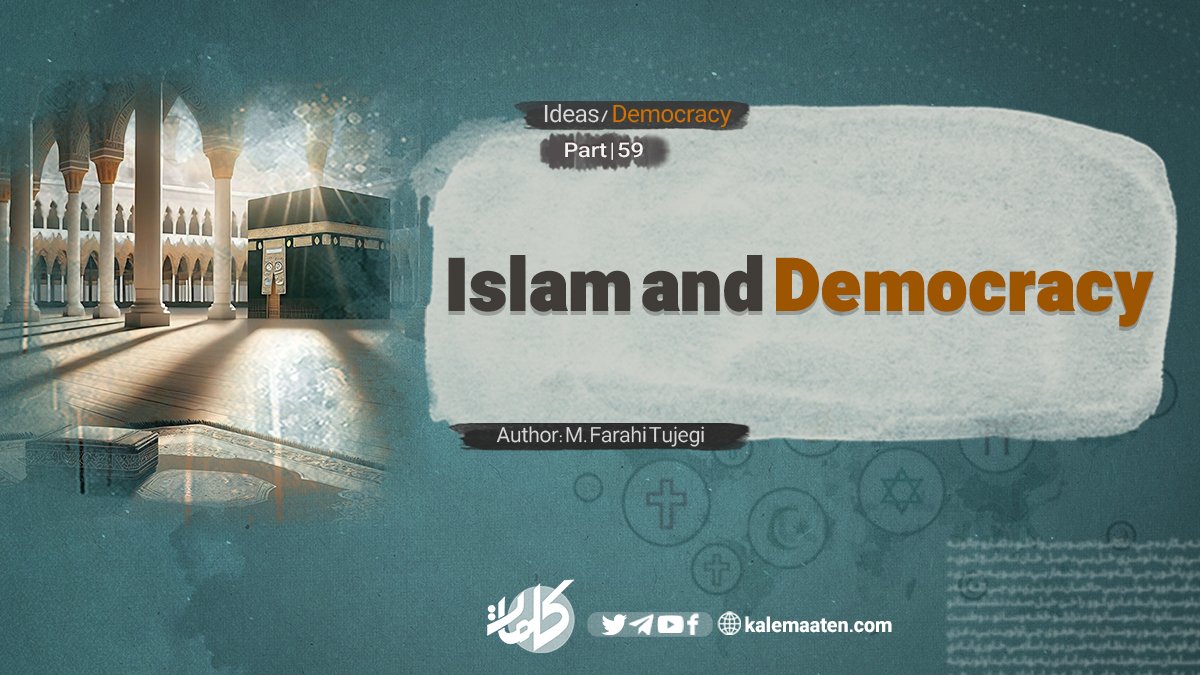Author: M. Farahi Tujegi
Islam and Democracy (Part 59)
Characteristics of Council Members
In this section of attributes of the members of the Shora, three additional qualities are highlighted:
7. Experience
A consultant must have sufficient experience in the subject under discussion and possess the ability to understand and analyze issues. He should utilize the experiences of past generations to propose solutions that are appropriate to the time and place.
Thus, members of the Shora must have a thorough understanding of the country’s conditions, internal and external political developments, and the ability to analyze and evaluate ongoing events. Additionally, they must recognize the interests of Islam and the Muslim community during times of crisis and challenges, providing precise consultations and presenting beneficial opinions to help resolve societal issues.
8. Influence and High Social Status
In addition to qualities such as justice, trustworthiness, knowledge, expertise, experience, and sound judgment, members of the Shura should also possess social influence and a high standing among the people. They should be leaders of their communities and representatives of Muslim groups so that their pledge of allegiance to the leader of the Muslims ensures the satisfaction and obedience of the masses. This was evident in the Shura of Sayidina Abu Bakr al-Siddiq and Sayidina Umar al-Faruq (MAPH), which included the chiefs and leaders of the Muhajiroun and Ansar.
9. Citizenship
A person who attains membership in the Shora Council must be a citizen of the Islamic state. Furthermore, every member of the Shora must hold only the citizenship of this Islamic country (Dar al-Islam) and should not accept the citizenship of non-Islamic countries (Dar al-Harb).
Someone who does not hold the citizenship of an Islamic country or has dual citizenship (i.e., citizenship of both an Islamic and a non-Islamic country) is politically and legally affiliated with the non-Islamic state and, therefore, cannot genuinely work for the welfare and interests of the Islamic country. Citizenship represents an individual’s relationship and commitment to the state; hence, a person holding the citizenship of a non-Islamic country is bound by its allegiance and acts in its interests.
Moreover, the presence of such individuals in the Islamic Shora creates opportunities for non-Islamic countries to interfere in Muslim affairs. For this reason, holding the citizenship of an Islamic state is a fundamental requirement for membership in the Shora Council.
Consequently, even if a person is a capable and pious Muslim, he cannot be a member of the Shora if he holds the citizenship of a non-Islamic state. As Allah the Almighty says: «إِنَّ الَّذِينَ آمَنُوا وَهَاجَرُوا وَجَاهَدُوا بِأَمْوَالِهِمْ وَأَنفُسِهِمْ فِي سَبِيلِ اللهِ وَالَّذِينَ آوَوا وَنَصَرُواْ أُوْلَئِكَ بَعْضُهُمْ أَوْلِيَاء بَعْضٍ وَالَّذِينَ آمَنُوا وَلَمْ يهَاجِرُواْ» Translation: (1) “Indeed, those who have believed and emigrated and strived in the cause of Allah with their wealth and their lives, and those who gave shelter and aided them—these are allies of one another. But those who have believed and have not emigrated, for you there is no duty of protection over them until they emigrate.”
Continues…
1- (Al-Anfal: 72)



